Hear her voice
Securing rights of indigenous women in rural Peru enhances environmental action and livelihoods
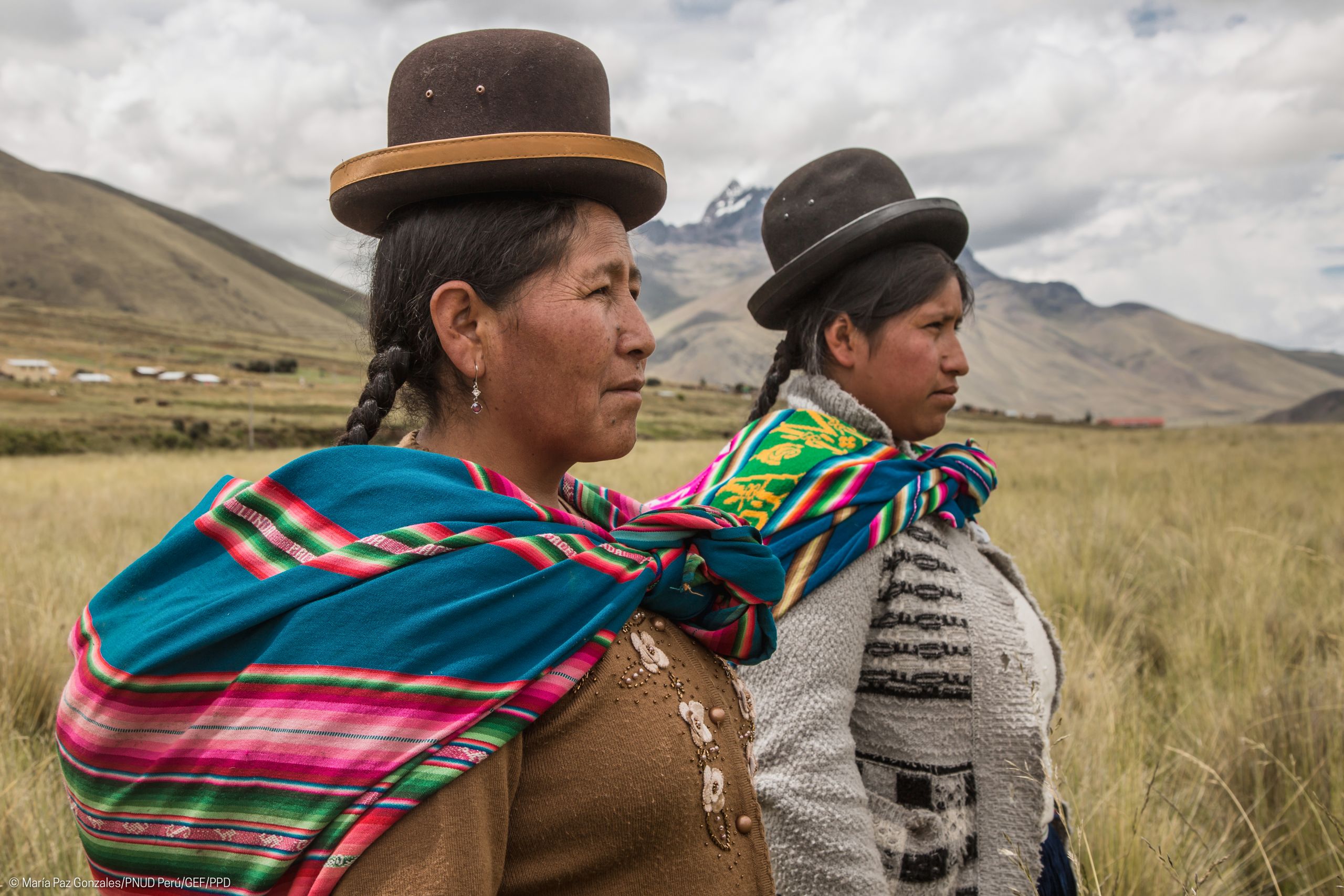
At 54 years old, María Choquepata Palomino has been fighting for the rights of indigenous women in the Peruvian Andes for more than three decades, with a passion to improve natural resources management that are essential to her communities’ livelihood.
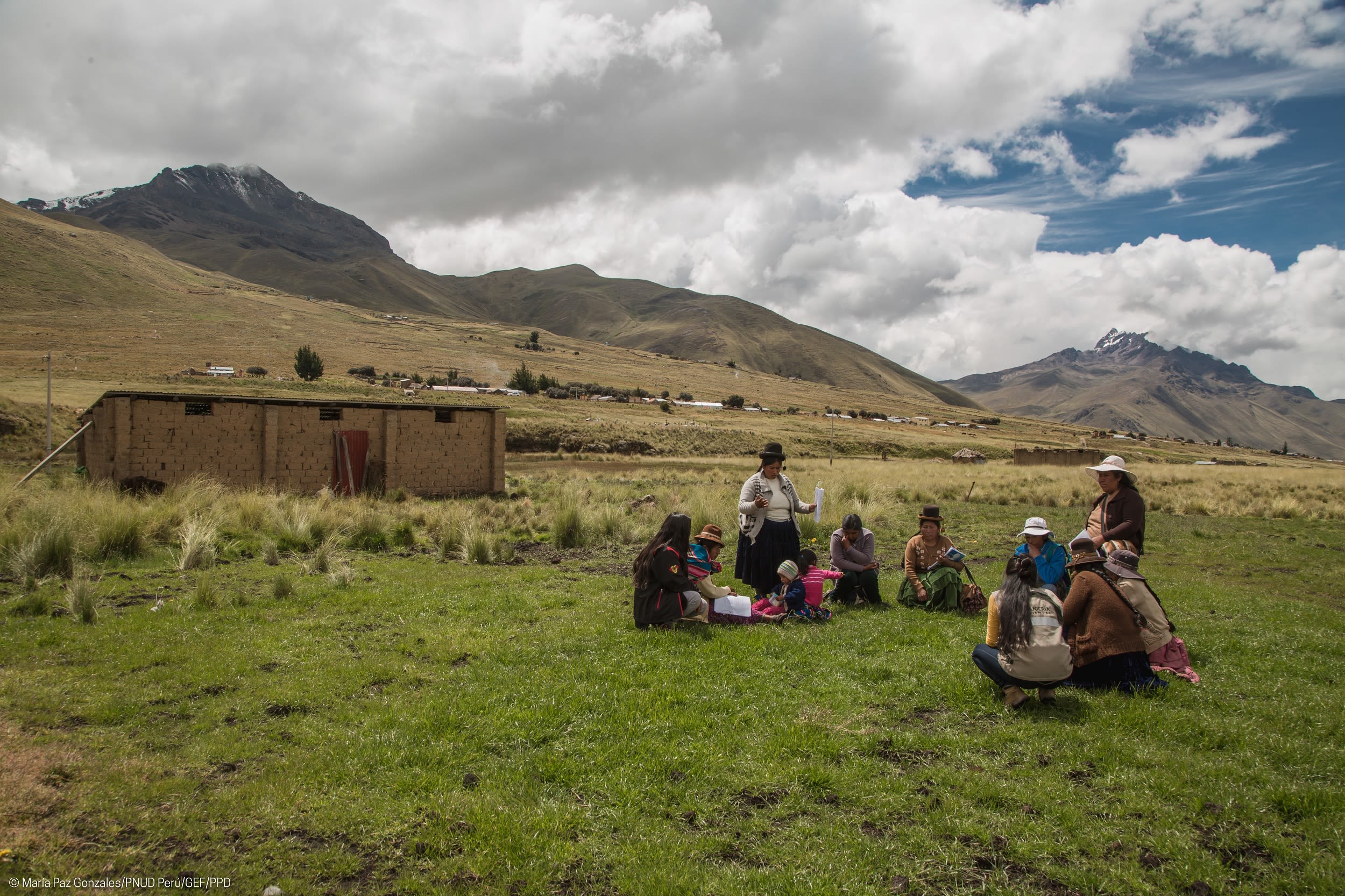
Born in a small rural community in Nuñoa district, in the department of Puno, she has worked tirelessly to address gender inequality in a region that still suffers from high poverty levels.
Over 20 percent of the population in Peru lives with around US$100 per month (in Spanish), although this figure can be much higher is rural areas.

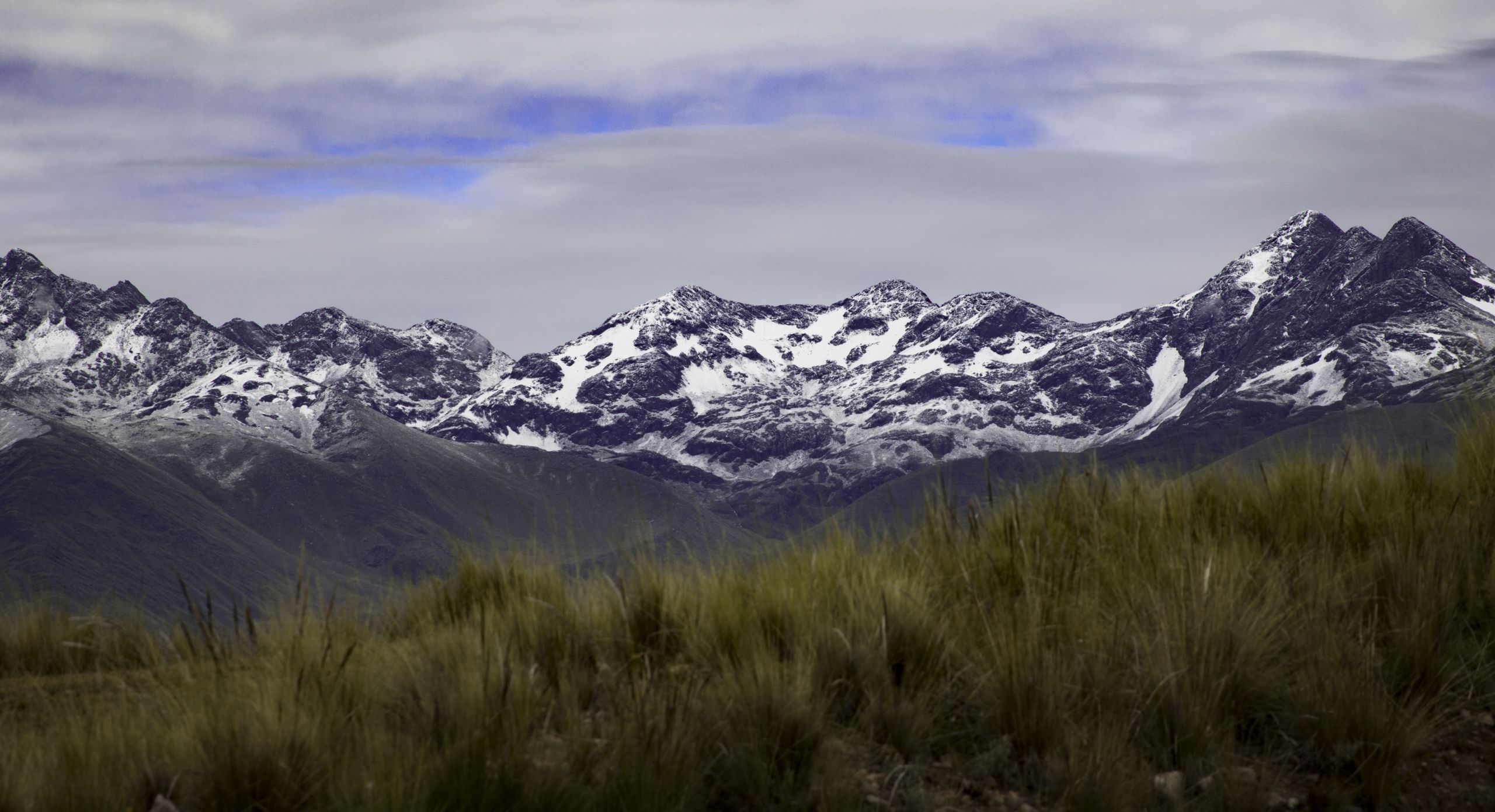
View of the Andes mountain range in the region of Puno, Peru. Photo: UNDP Peru, SGP Peru/Milagros Léon
View of the Andes mountain range in the region of Puno, Peru. Photo: UNDP Peru, SGP Peru/Milagros Léon
To make matters worse, a quarter of the 3.3 million rural women in the country are illiterate, compared to 9 percent of men. This is one of the biggest barriers that prevents women from getting jobs, becoming financially independent and participating in decision-making spaces. As a result, 46 percent of these women don’t have their own source of income, despite working 12 hours per week more than men, including paid and non-paid work.
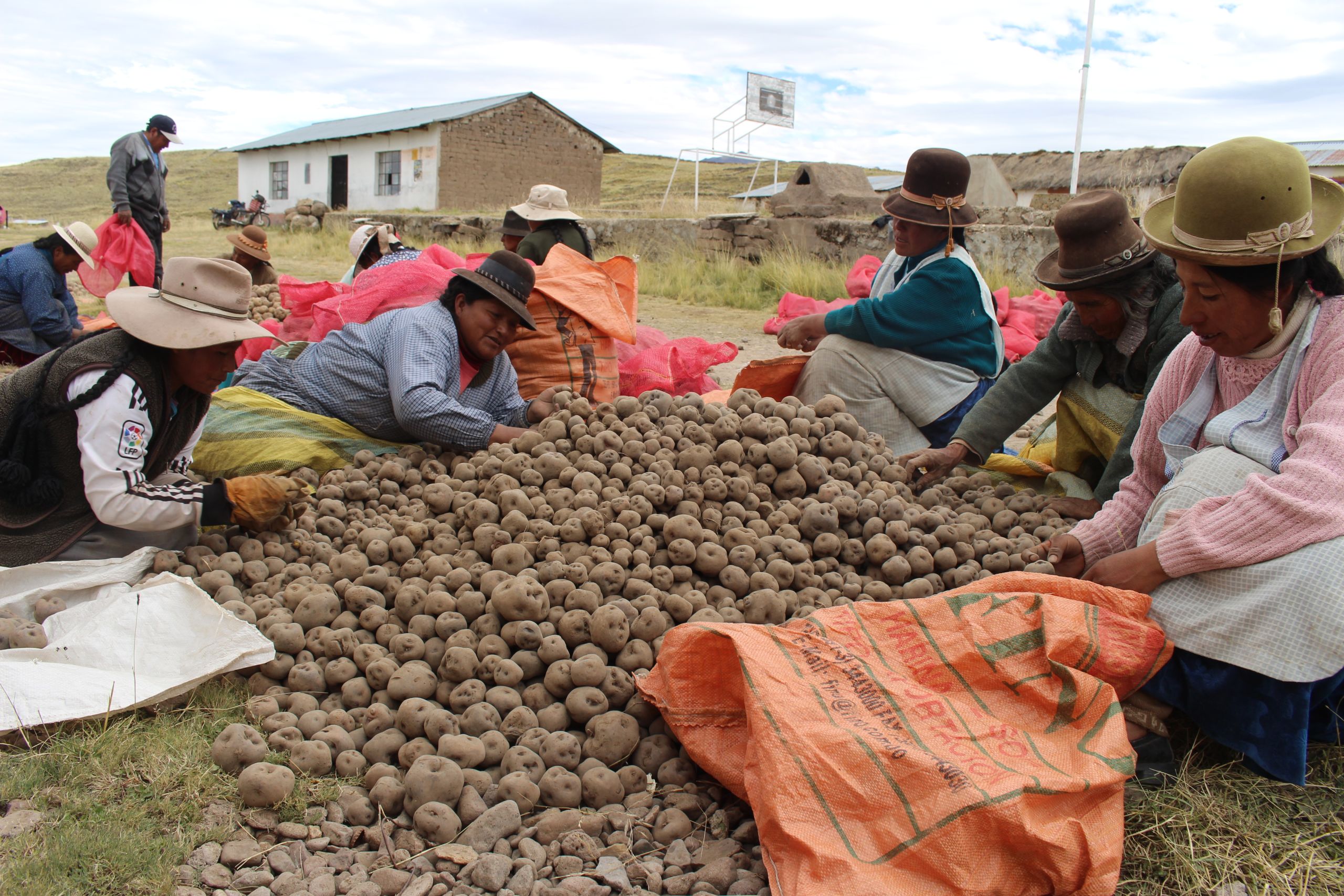
Rural women sorting local produce. Photo: UNDP Peru, SGP Peru/ Diana Beltran
Undeterred by this challenging context, María has defied gender bias and inequality to assert indigenous women’s right to political participation by becoming an elected government official in the province of Melgar. Her ultimate mission? To ensure indigenous women in her community have a voice in the management and conservation of natural resources that are essential to their livelihoods.
“Women are nothing more or less than men. We are different, but we are worth the same and deserve equal opportunities."
This International Women’s Day, the Global Environment Facility’s Small Grants Programme (SGP), implemented by the United Nations Development Programme, celebrates the incredible achievements of María and many more women like her who have shown how gender equality and women’s empowerment are critical elements of SGP efforts to support community-based initiatives that address global environmental issues.

Rural women sorting local produce. Photo: UNDP Peru, SGP Peru/ Diana Beltran
Rural women sorting local produce. Photo: UNDP Peru, SGP Peru/ Diana Beltran
Located in the eastern part of the Andes mountain range, in southeast Peru, the province of Melgar is marked by a rugged landscape, with foothills forming deep ravines where the climate is especially suitable for agriculture. Barley, oats, potatoes and quinoa are among the products cultivated mainly for families’ subsistence. While there are also extensive natural pastures used to feed livestock, a central issue is the scarcity of water and its contamination by heavy metals from mining, which threatens people’s health.
In these highlands, local communities consider water to be the blood that circulates through their veins. Defending it, therefore, is like defending their own lives.
For María, if there is no water, there is no quality of life.
“The future of peasant families depends on water, it is the mother who feeds the earth and nature, which is why we take care of it through ancient traditions and medicinal plants. Thanks to this, we have good health and the women in our communities have lived until 80, 90, 100 years old or more. For many years, we have lived in a sustainable way. Water is a fundamental pillar for everyone, especially in rural areas.”
María Choquepata Palomino

This concern for their precious water resources, combined with a need to raise their voices and be heard, brought together women from the provinces of Melgar, Azángaro and Lampa. In this moment, an idea was born: they would organize themselves and form a network to protect water and nature, advocating for proposals to solve the environmental and social problems that affect their communities.
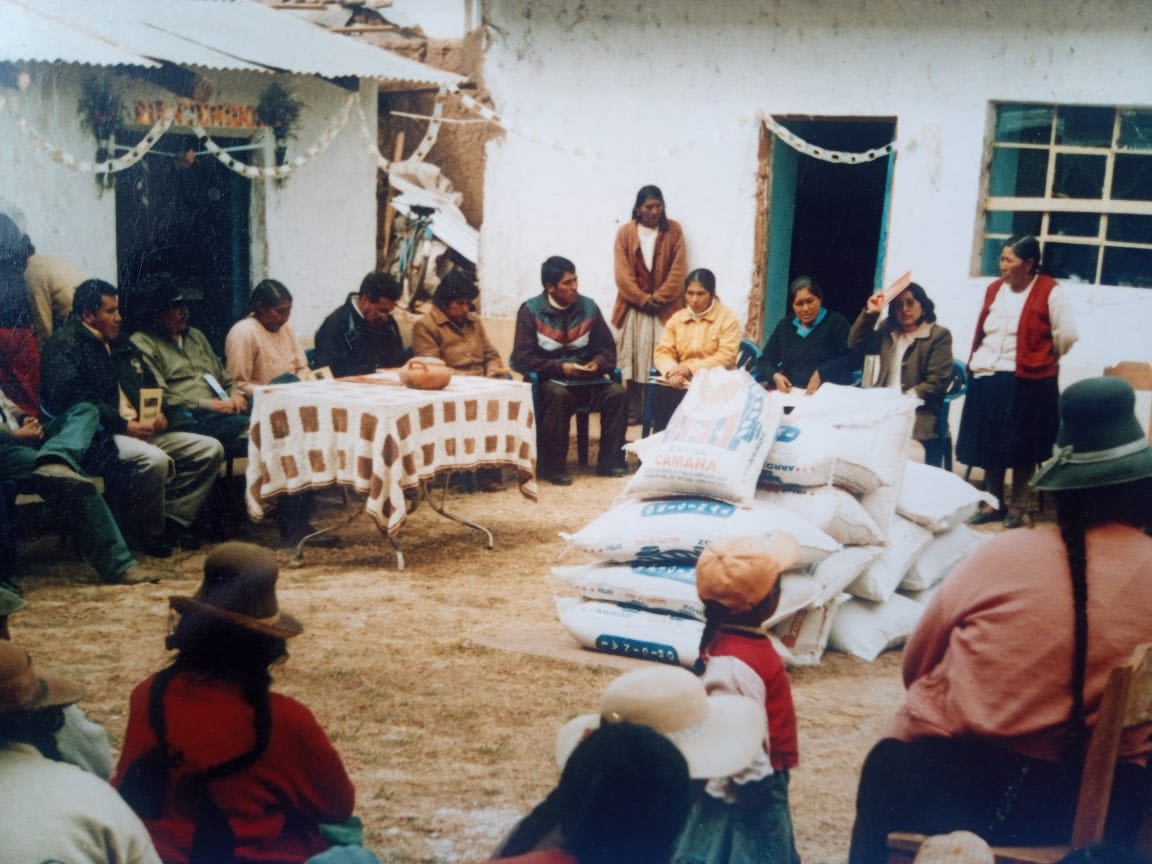
María participating in a dialogue with local authorities to discuss a milk programme. Photo: personal archive of María Choquepata Palomino
To promote this initiative, the Puno Peasant Training Center carried out a project in 2018 and 2019 to strengthen local women’s community-based organizations, with support from SGP and the Peruvian Ministry of Environment.
A total of 230 women from nine organizations joined the network, including María. The goal was to empower them to participate in decision-making spaces for the development of public policies about the use and conservation of agrobiodiversity and ecosystem services, while promoting sustainable livelihoods.
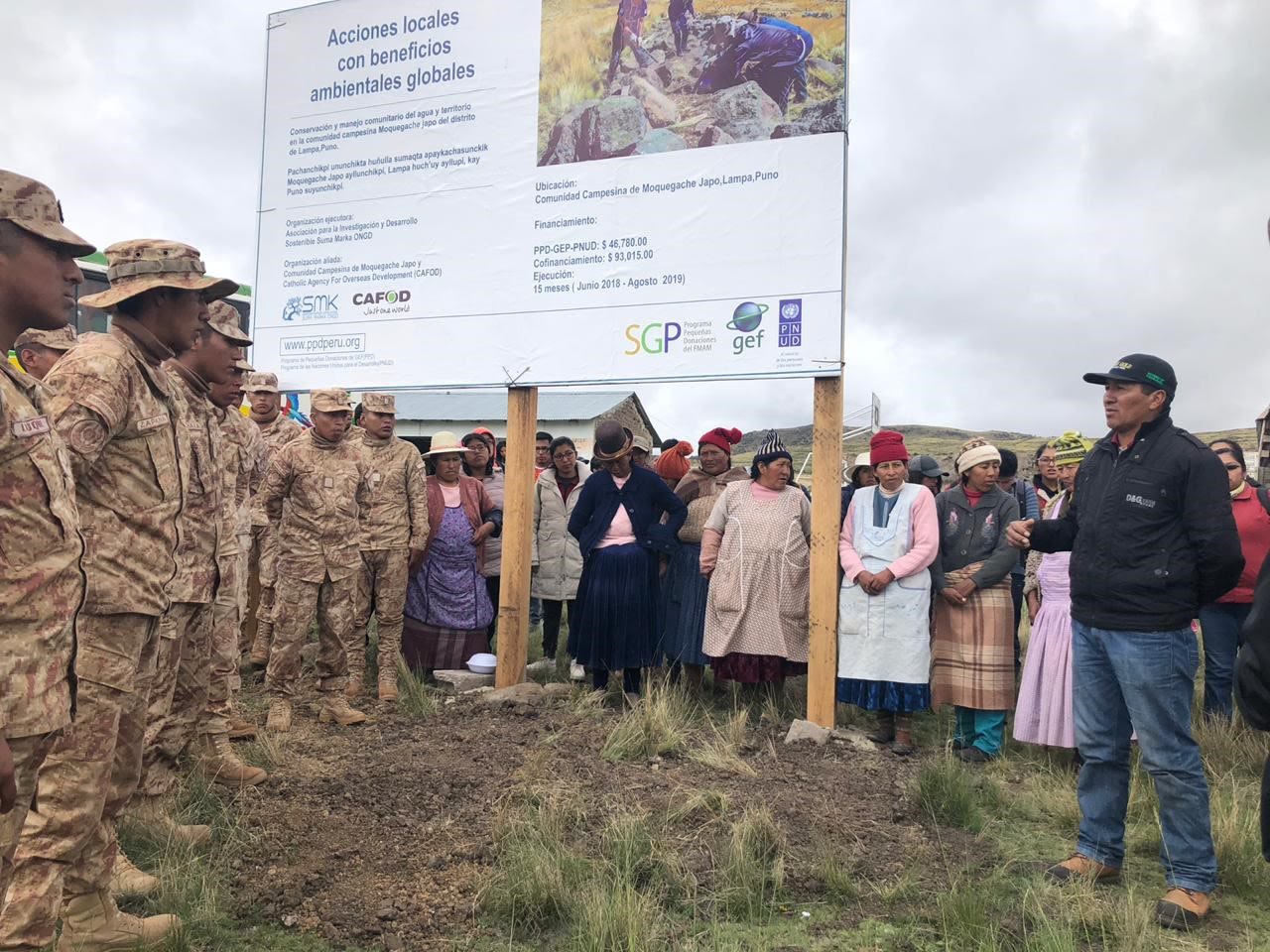
Local authorities and community members gathered to discussed the SGP-supported project implemented by the Puno Peasant Training Center. Photo: UNDP Peru, SGP Peru/Diana Beltran
By allowing these women to have a voice in discussions involving the natural resources on which they depend, the project aimed to accelerate sustainable development and strengthen democracy in their communities through inclusive governance. Ultimately, by addressing gender gaps in local political representation, it could represent a starting point for structural transformations to eliminate gender violence and guarantee the full exercise of women’s rights in Puno.
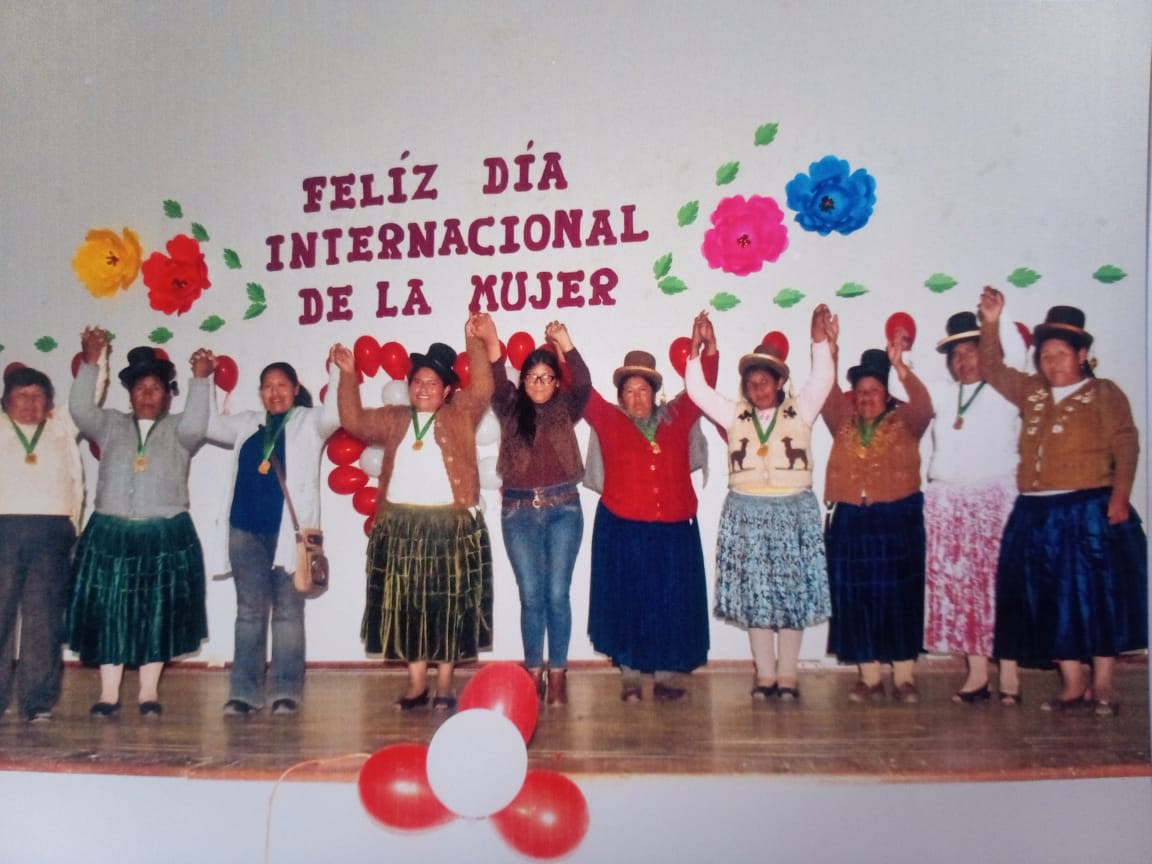
María participating in a celebration for International Women's Day with other local women's leaders. Photo: personal archive of María Choquepata Palomino
The organization model that was implemented allowed the women to create a network with the capacity to influence public policies at the district, provincial and regional levels, in a way that ensured that even the issues affecting the most remote communities could be addressed. Project activities were focused on strengthening the women’s community-based organizations and developing their individual capacities in relation to biodiversity conservation, especially water management. This involved training the women to monitor water quality in priority areas, as well as to advocate for agrobiodiversity conservation before local authorities in their provinces.
Thanks to the women’s network and advocacy, the original SGP project was upscaled to a public investment project for sustainable water management, including management of critical watersheds, and conservation of agrobiodiversity, covering 32,000 hectares in eight districts of Melgar province.
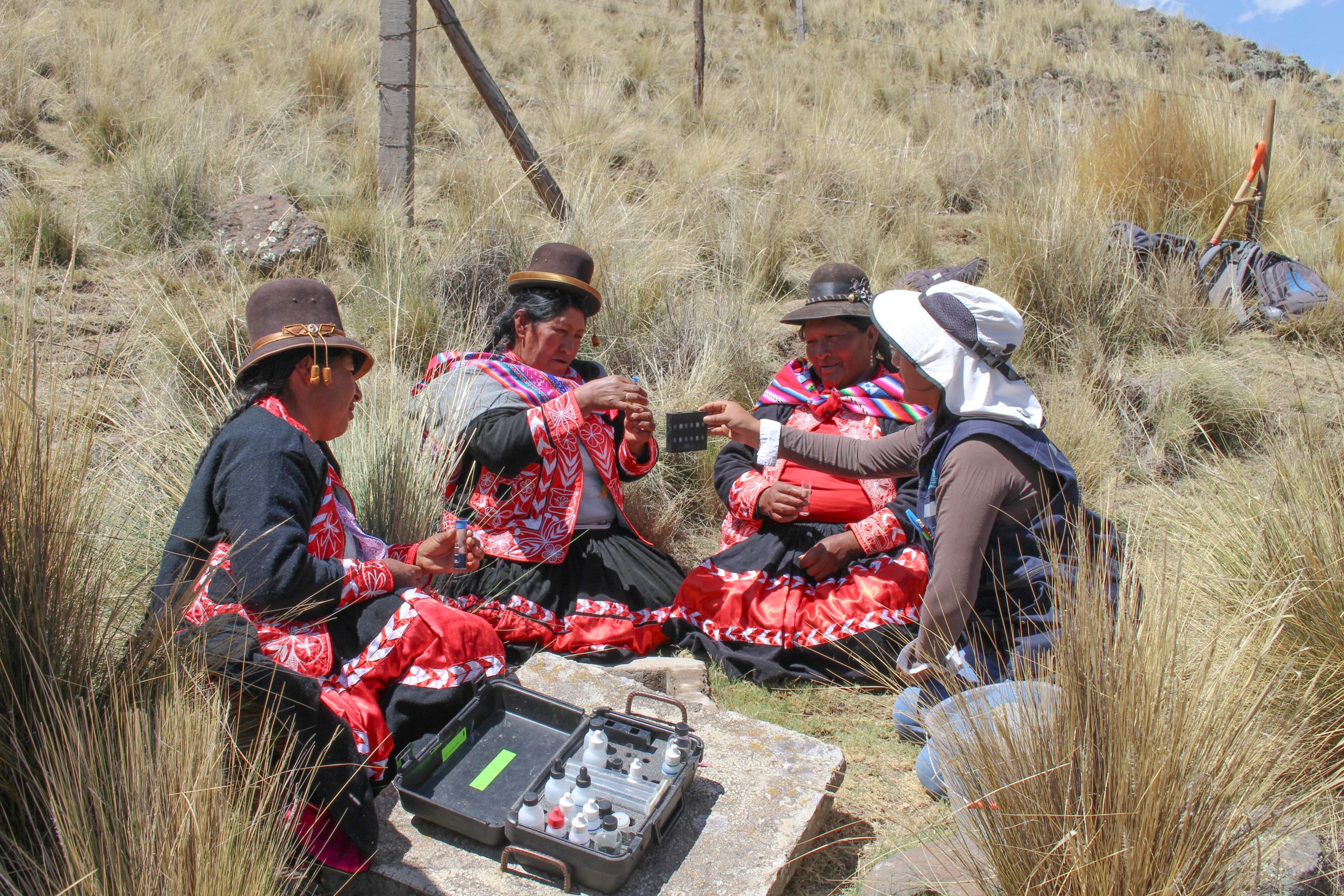
Local women testing the quality of water from a stream as part of the SGP-supported project implemented by the Puno Peasant Training Center. Photo: UNDP Peru, SGP Peru/Diana Beltran
The initiative to improve water management included the development and implementation of a community water quality monitoring plan, led by women from various communities, as well as an increase from 15 to 82 percent in the participation of young women in the community-based organizations.

María participating in a dialogue with local authorities to discuss a milk programme. Photo: personal archive of María Choquepata Palomino
María participating in a dialogue with local authorities to discuss a milk programme. Photo: personal archive of María Choquepata Palomino

Local authorities and community members gathered to discussed the SGP-supported project implemented by the Puno Peasant Training Center. Photo: UNDP Peru, SGP Peru/Diana Beltran
Local authorities and community members gathered to discussed the SGP-supported project implemented by the Puno Peasant Training Center. Photo: UNDP Peru, SGP Peru/Diana Beltran

María participating in a celebration for International Women's Day with other local women's leaders. Photo: personal archive of María Choquepata Palomino
María participating in a celebration for International Women's Day with other local women's leaders. Photo: personal archive of María Choquepata Palomino
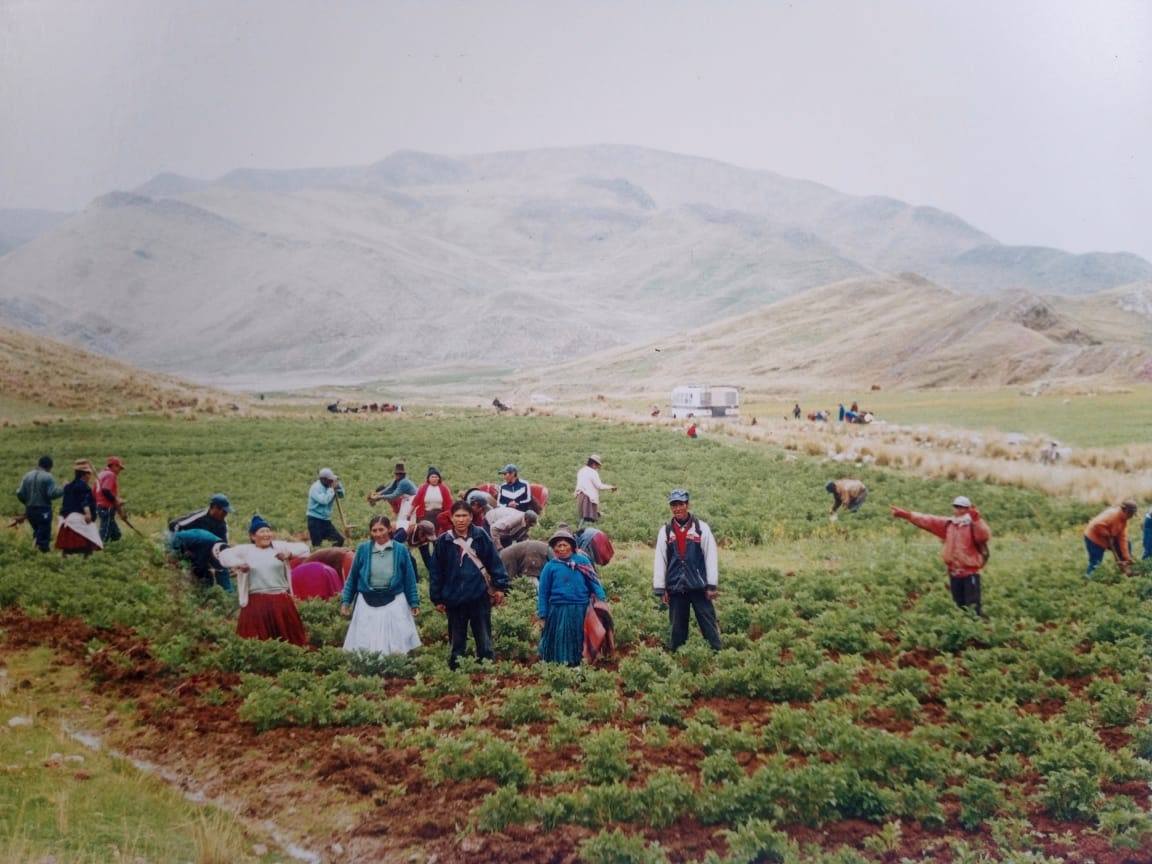
María participating in an agriculture project in her local community in 2009. Photo: personal archive of María Choquepata Palomino
María participating in an agriculture project in her local community in 2009. Photo: personal archive of María Choquepata Palomino

Local women testing the quality of water from a stream as part of the SGP-supported project implemented by the Puno Peasant Training Center. Photo: UNDP Peru, SGP Peru/Diana Beltran
Local women testing the quality of water from a stream as part of the SGP-supported project implemented by the Puno Peasant Training Center. Photo: UNDP Peru, SGP Peru/Diana Beltran
“Once the project was completed, the women’s leaders had to address the COVID-19 pandemic, demonstrating their resilience and ability to adapt. While caring for their families’ health as well as their own, they did not stop supplying the market with basic agroecological products, overcoming difficulties, contributing to the food security of the population and taking the opportunity to share their experiences and knowledge through virtual platforms, as a result of the training they received in information and communication technologies.”
One of the network’s most notable accomplishments was the victory of three of its leaders in the 2018 local elections: besides María, Elvira León Mayta also won a seat in Melgar and Verónica Chinchercoma Tapia was elected in the district of Santa Rosa. From these political spaces, they have continued to promote water and agrobiodiversity conservation in their communities. With the strengthening of the women's network from the local to the provincial level, the foundations have been laid for their work to continue beyond the project.
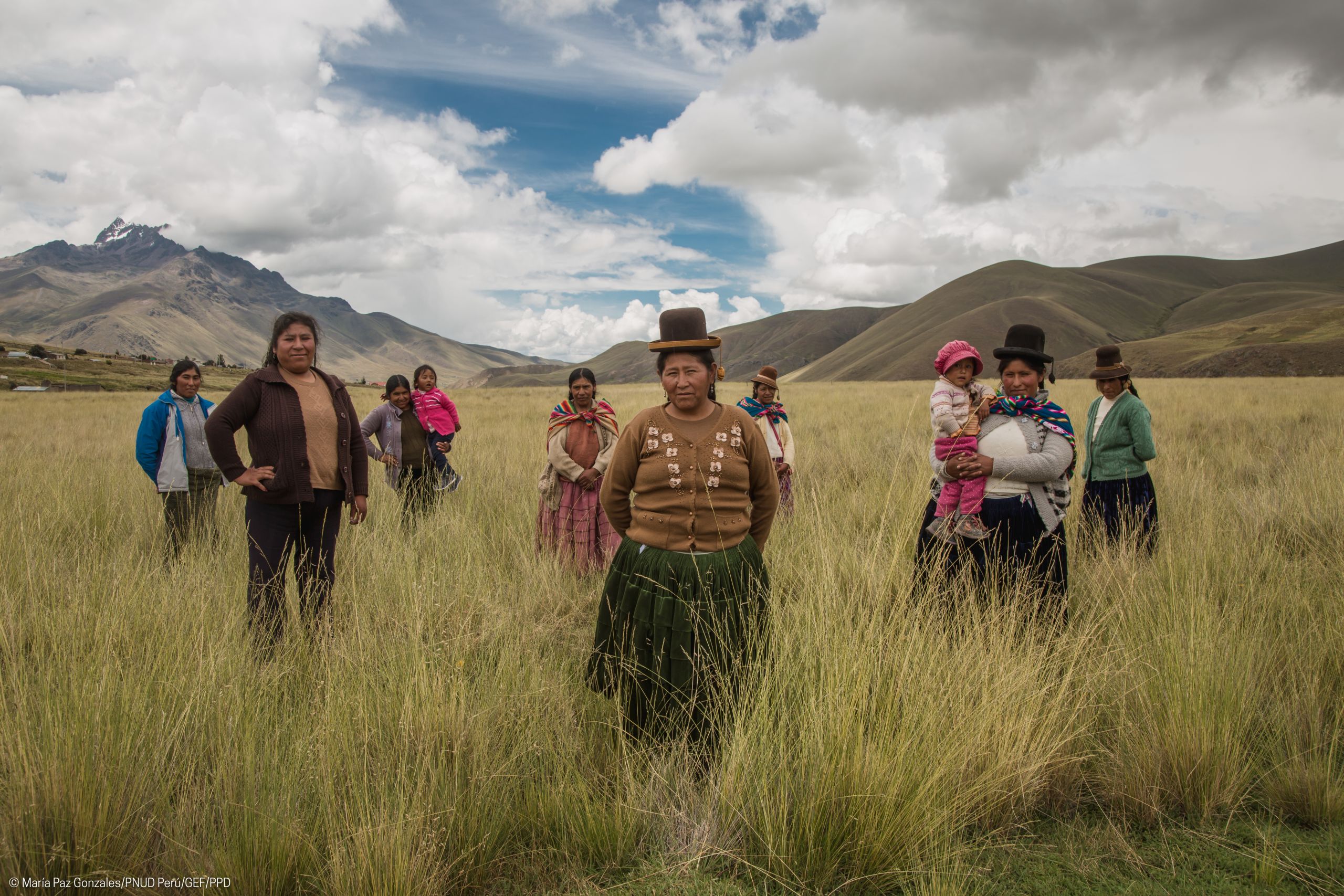
“Indigenous, natives, Andean, as they call us... this is what gives us strength to move forward and seek those spaces to reach power. For a woman, it is not easy to come to power. There is always discrimination. They always think of the Andean, indigenous woman: what is she going to be able to do?”
María says she will continue to strengthen capacity development by replicating what she learned in the project. Her main goal right now is to pass a municipal ordinance to create an official authority to promote gender equality and protect women’s rights in Melgar.
Having lost her husband seven years ago, she believes that many times in life there are challenges that have to be faced with courage and strength, in her case bearing in mind her responsibilities both as a mother and as a leader of the organizations she represent. While her three sons live in the city of Arequipa, where they work in the civil construction industry after having completed their higher technical education, her youngest daughter is still a student and dreams of continuing her mother’s work, contributing to society and to those who need it the most.
“Personally, I always had the dream of being heard, since for many years we were marginalized. I feel that it is an achievement [to have] the opportunity to participate and express our ideas, and to have them being taken into account.”
Small Grants = Big Impacts
SGP provides financial and technical support to civil society and community-driven initiatives that that address global environmental issues, while improving local livelihoods. Since 1999, it has supported more than 322 projects in Peru in the areas of biodiversity, climate change, land degradation, and chemicals and waste. For more information, visit the SGP Peru Country Page.
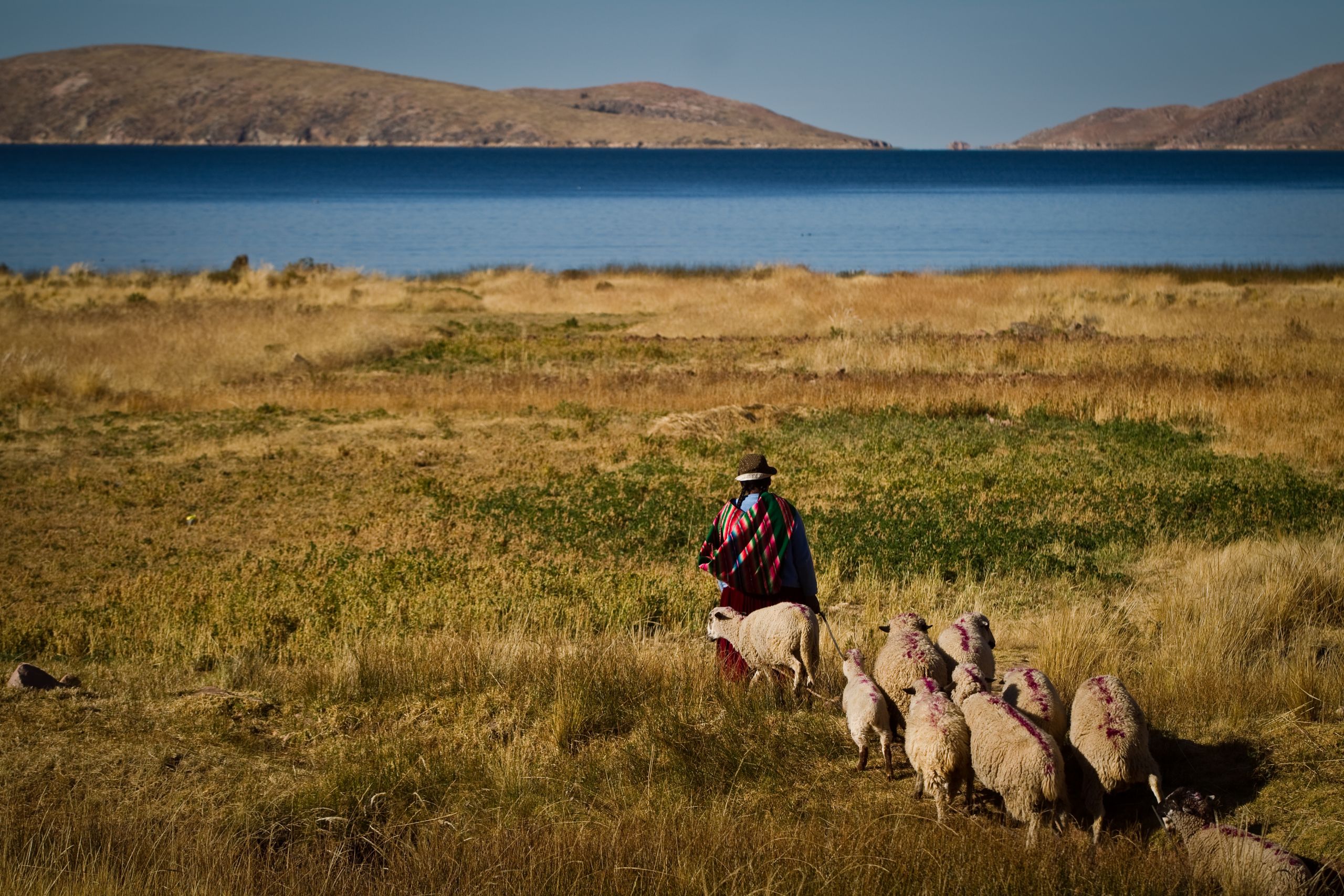
Comunidades Alpaqueras, Puno. Photo: UNDP Peru, SGP Peru/Enrique Castro-Mendívil.
Visit the SGP website for details on the overall Small Grants Programme.

Comunidades Alpaqueras, Puno. Photo: UNDP Peru, SGP Peru/Enrique Castro-Mendívil.
Comunidades Alpaqueras, Puno. Photo: UNDP Peru, SGP Peru/Enrique Castro-Mendívil.
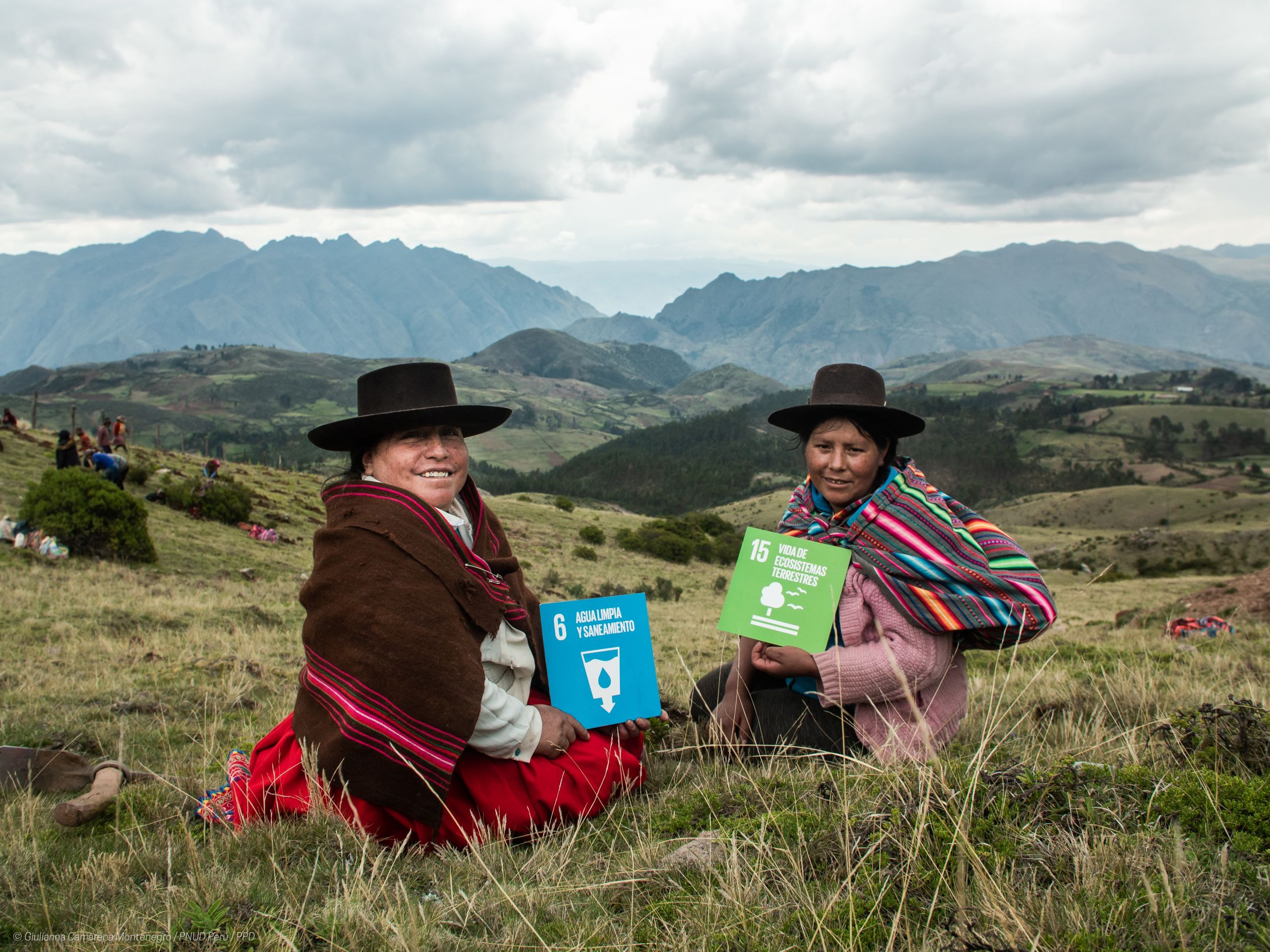

Story by: Ana Paula Canestrelli, Manuel Mavila and Andrea Egan
Photos: © UNDP Peru, SGP Peru, Diana Beltran, Maria Paz González, Milagros Léon, and personal archive of María Choquepata Palomino
Header photo: © UNDP Peru, SGP Peru, Maria Paz González
Location: department of Puno, Peru
